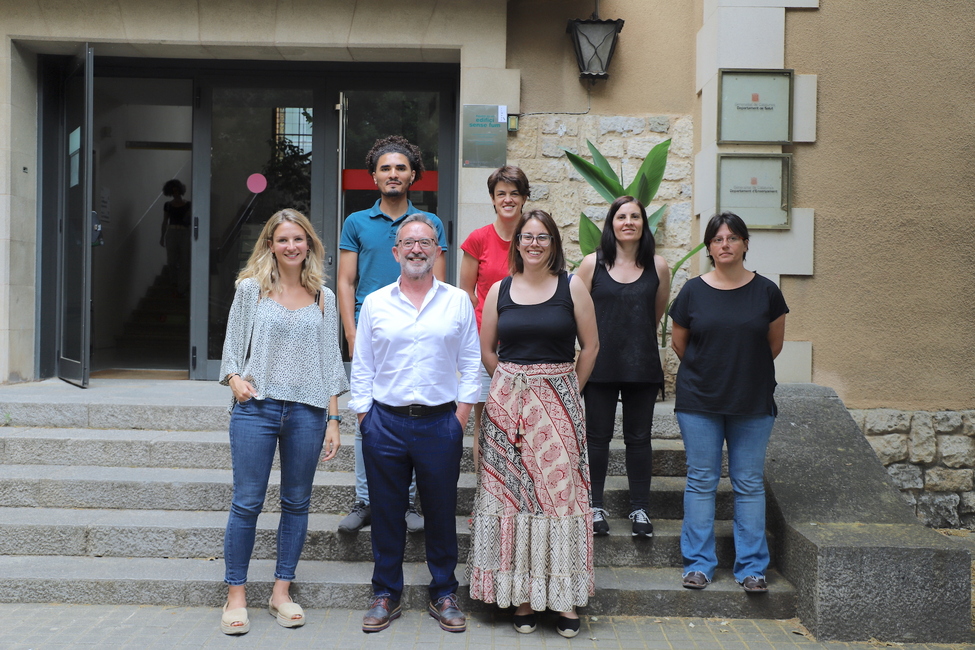Checking the effectiveness of drugs with real-world epidemiological data helps determine their benefit to the patient
Researchers from the Descriptive and analytical epidemiology of cancer group at the Josep Carreras Leukaemia Research Institute have participated in a study that has compared the effectiveness data of tyrosine kinase inhibitors (TKIs) declared in randomized clinical trials, with their action on real population based on epidemiological data. The research proves that the results of the trials, despite being carried out under ideal, highly controlled conditions, are correctly translated to the general population, with all its complexity, demonstrating the effectiveness of TKIs in the real world.

Chronic Myeloid Leukemia (CML) is a type of blood cancer characterized by an abnormal growth of the myeloid cells at the bone marrow, the ones responsible for producing red blood cells, platelets and the non-lymphoid lines of white blood cells. This abnormal growth impairs the formation of sufficient numbers of these essential cells. Its incidence varies between one and four cases per 100,000 inhabitants, depending on their age.
Until the introduction of tyrosine kinase inhibitors (TKIs) in 2001, CML was associated with poor prognosis and short life expectancy, but their wide-scale adoption turned the statistics upside down and today, with the third generation of TKIs already deployed, CML is beginning to be considered a chronic disease.
Like any other drug, the effectiveness of TKIs against CML is based on the results of a set of randomized clinical trials, carried out on a specially selected population with very strict inclusion criteria, such as the absence of other pathologies that could interfere with the study. There is, therefore, a reasonable reluctance about the effectiveness of the same drugs on the bulk of patients, a much more complex population.
The group of Dr. Rafael Marcos-Gragera, also a member of the Catalan Institute of Oncology (ICO), the Girona Biomedical Research Institute (IDIBGI) and part of EUROCARE-6, a collaborative study on cancer survival at the European level, has compared the data from several clinical trials corresponding to the action of TKIs on CML, as produced by the pharmaceutical companies themselves, with existing epidemiological records of CML survival, from 2001 to 2014. This period covers the introduction of the various generations of TKIs in the health systems of the EU member countries.
The data analysis, recently published in the specialized journal Frontiers in Oncology, reveals that the introduction of TKIs was of great benefit to CML patients, with sustained increases in survival in all member states, endorsing the results obtained in clinical trials. However, the study shows that these benefits did not reach all countries equally, with Eastern Europe showing the lowest improvement rate.
These differences between countries could be explained by a certain delay in the incorporation of TKIs as the first line of treatment against CML in the public health systems of Eastern Europe, which would translate into significantly lower survival data.
The study shows that the analysis of epidemiological data, despite its complexity, can be compared with the results obtained in controlled clinical trials, offering a more realistic view of the effectiveness of drugs in the real world. In addition, in the case of TKIs, it has made it possible to reinforce the recommendation for the adoption of these new generations of drugs against CML in countries where they had not yet been decidedly committed to them.
Reference article:
Vener C, Rossi S, Minicozzi P, Marcos-Gragera R, Poirel HA, Maynadié M, Troussard X, Pravettoni G, De Angelis R, Sant M; EUROCARE-6 Working Group. Clear Improvement in Real-World Chronic Myeloid Leukemia Survival: A Comparison With Randomized Controlled Trials. Front Oncol. 2022 Jul 14;12:892684. doi: 10.3389/fonc.2022.892684.